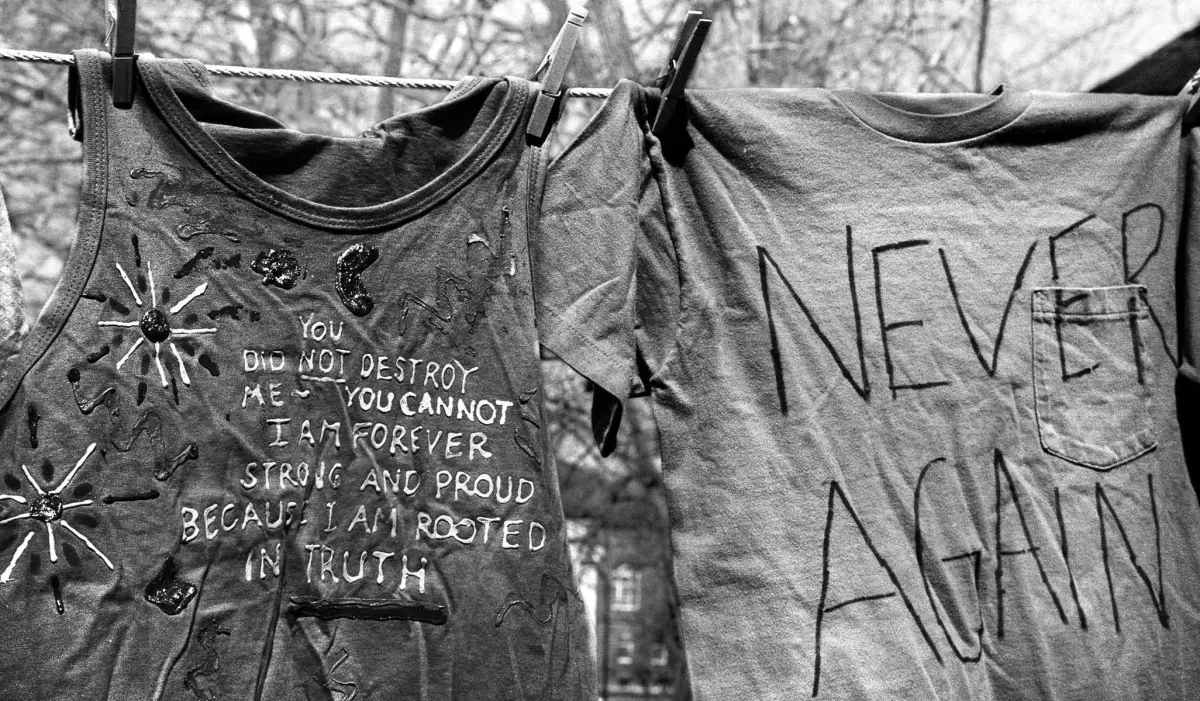
as seen on






Strong At The Heart
How it Feels to heal from Sexual Abuse

HOW TO HELP YOURSELF
The following suggestions come from people who have lived through sexual assault and are doing well.
If you’ve been sexually abused or assaulted:
Remember, you are not alone. Other people have been through this and made it out the other side. You can, too.
Reach out. Tell someone what happened. Talk with a counselor, friend, teacher, parent or clergy person. Or call one of the confidential helplines now. Keep telling until you find the support you want and need.
Don’t take on the blame. When a child is molested by an adult, the adult is responsible, no matter what the child did, said or felt at the time. If a person of any age forces sex on another, that is rape.
Be kind to yourself. Accept that you may feel fear, rage, sadness, shame or guilt. Or not feel much at all. What happened can affect your thoughts about yourself, other people, or your own sexuality. These feelings and thoughts are normal after rape or abuse. Healing lets you work through them so that you can be in charge of your life and your future.
Find ways to tell your story. Draw, write, sing. Putting your experience outside of yourself is an excellent way to help yourself heal.
Get outside. Walk, run, ride a bike. Get in touch with nature. When you are physically active, you feel better.
Know that you can heal. No matter when the assault occurred, even if it was years ago, healing is always possible. Look for a counselor who is trained to help sexual abuse survivors. Call your local Rape Crisis center or a national helpline for referrals.
You can find more resources at websites and books and in Strong at the Heart.
*** The information on this page is not intended to take the place of medical advice, professional counseling, or crisis intervention.***
USE THIS AREA TO TELL YOUR STORY
Meet Your Name Here!
Talk about your failure when you first started looking for a solution. Maybe there was a conspiracy against you, a false belief, a misunderstanding.
Show how the traditional methods didn't work and you were super frustrated.
Then, you had an ah-ha moment that brought you the result, benefit, solution you were looking for. Lorem ipsum dolor sit amet, consectetur adipisicing elit. Autem dolore, alias, numquam enim ab voluptate id quam.

Ask them to imagine what life will be like when they too have the success you have?
AS FEATURED IN


what Others are saying...
“A really strong testimonial that confirms the transformation that is waiting.”
Lorem ipsum dolor sit amet, consectetur adipisicing elit. Autem dolore, alias, numquam enim ab voluptate id quam harum ducimus cupiditate similique quisquam et deserunt, recusandae. Lorem ipsum dolor sit amet, consectetur adipisicing elit. Autem dolore, alias, numquam.
Jane Awesome, ABC Co.
THE VALUE DOESN'T STOP THERE You'll Also Get These Benefits...
01
Explain Your Amazing Content
Name Of The Awesome Content
Mauris ac vestibulum nibh, quis euismod velit. Mauris sodales tincidunt ex vitae viverra. Nunc neque eros, convallis vel eros id, molestie bibendum neque. In hac habitasse platea dictumst. Integer quis hendrerit eros tincidunt ex vitae viverra. Nunc neque eros, convallis vel eros integer quis hendrerit eros.

02
Explain Your Amazing Content
Name Of The Awesome Content
Mauris ac vestibulum nibh, quis euismod velit. Mauris sodales tincidunt ex vitae viverra. Nunc neque eros, convallis vel eros id, molestie bibendum neque. In hac habitasse platea dictumst. Integer quis hendrerit eros tincidunt ex vitae viverra. Nunc neque eros, convallis vel eros integer quis hendrerit eros.

03
Explain Your Amazing Content
Name Of The Awesome Content
Mauris ac vestibulum nibh, quis euismod velit. Mauris sodales tincidunt ex vitae viverra. Nunc neque eros, convallis vel eros id, molestie bibendum neque. In hac habitasse platea dictumst. Integer quis hendrerit eros tincidunt ex vitae viverra. Nunc neque eros, convallis vel eros integer quis hendrerit eros.
